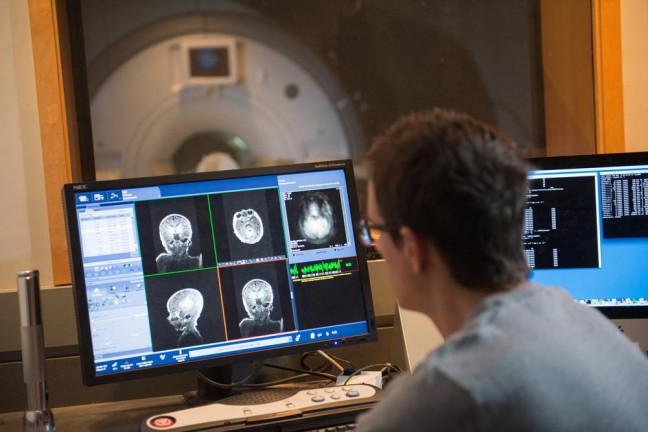State lawmakers and University of Wisconsin experts are encouraging conversations to improve mental health care’s current status in Wisconsin.
Wisconsin state Legislature’s Committee on Mental Health Reform, which was formed in 2015, has been a platform for encouraging such conversation, Rep. Melissa Sargent, D-Madison, said.
“This [committee] came out of a group of people who realized we need to do more about providing mental health services to support people,” she said.
The committee works with communities to learn and better address the issues they face, Sargent said. It is also interested in talking with experts about mental health care related problems in Wisconsin. Schools around the state have mentioned that they need more mental health services, she said.
Experts say Wisconsin is currently facing several major mental health care related issues.
Wisconsin has faced a shortage of hospital beds available to mental health patients, Michael Peterson, assistant professor and director of hospital psychiatric services at UW Hospital and Clinics, said. There is also a shortage in outpatient mental health care, which is sought out more often than inpatient care, he said.
There is a shortage not only in smaller, rural areas of Wisconsin but also in some urban areas, Peterson said.
It is harder to provide services for specialized mental health care in such regions as well, Julianne Zweifel, clinical psychologist with UW Health and UW clinical assistant professor for obstetrics and gynecology, said
“It’s certainly a luxury that is not more widely available,” she said.
Think about it: Psychiatrist shortage affects mental health care in Wisconsin
Zweifel said there have been initiatives to train obstetrics residents to provide specialty mental health care. Some have also been trained to provide specialty care via Skype. These initiatives have been useful in increasing access to mental health care in rural areas, she said.
The committee for mental health reform is bipartisan and works on Wisconsin’s mental health-related issues together, Sargent said.
“Mental health services don’t need to be partisan and certainly shouldn’t depend on who you’re voting for,” she said.
Another way to improve mental health reform in the state, Peterson said, is to increase the number of mental health care providers in the state. Increasing people’s awareness of opportunities in mental health and providing them with incentives would help attract people to the field, he said.
UW has created a psychiatry residency training program, which has led to an increase of one psychiatric resident per year for the last two years, Peterson said. This was established with state funds to increase accessibility to mental health care in Wisconsin.
Zweifel said she has seen UW administration refer staff, faculty and students facing problems to mental health services.
“The [UW administration] understands that people might be suffering and help identify the right resources for them,” she said.
Medical grant gives new lease on life to Wisconsin’s doctor shortage
Having more mental health reform legislation would be beneficial for the state, Peterson said, adding that medical mental health care fields like psychiatry are still not considered equal to other types of medical care. Further legislative reform would be required to increase the number of hospital beds for psychiatry patients and to address insurance problems mental health patients face, he said.
The more discussion mental health reform generates the less people will consider it a stigma, Peterson said.
“Hopefully people are more willing to talk about it and have a better understanding of it and I think that will go a long way with people willing to seek care as well,” he said.














